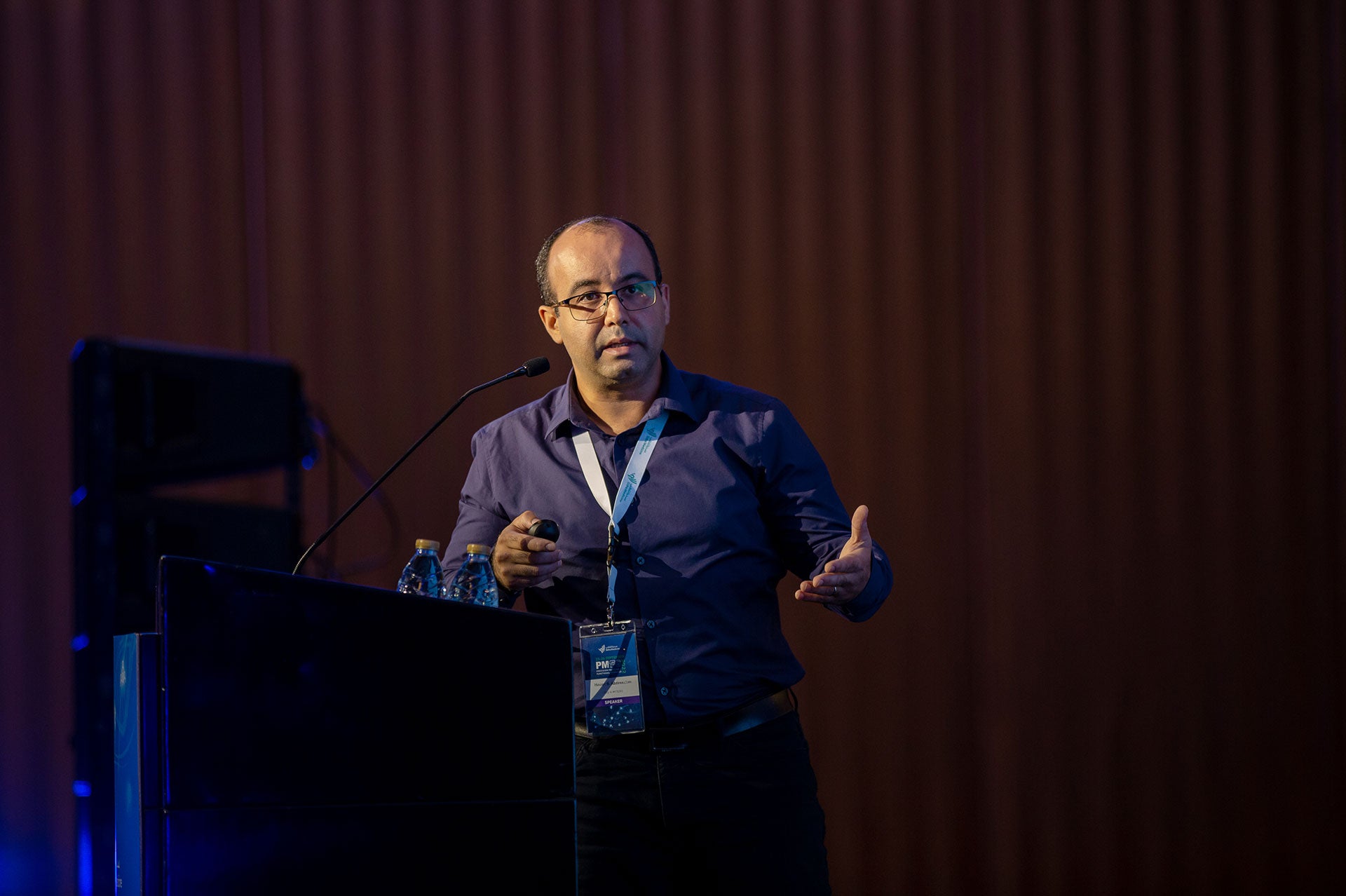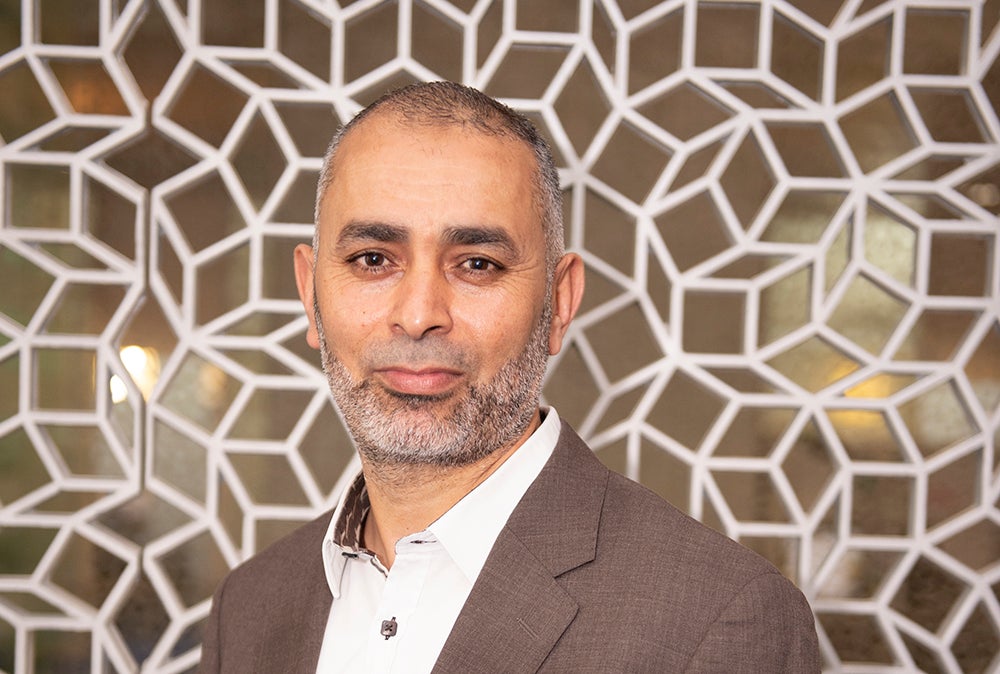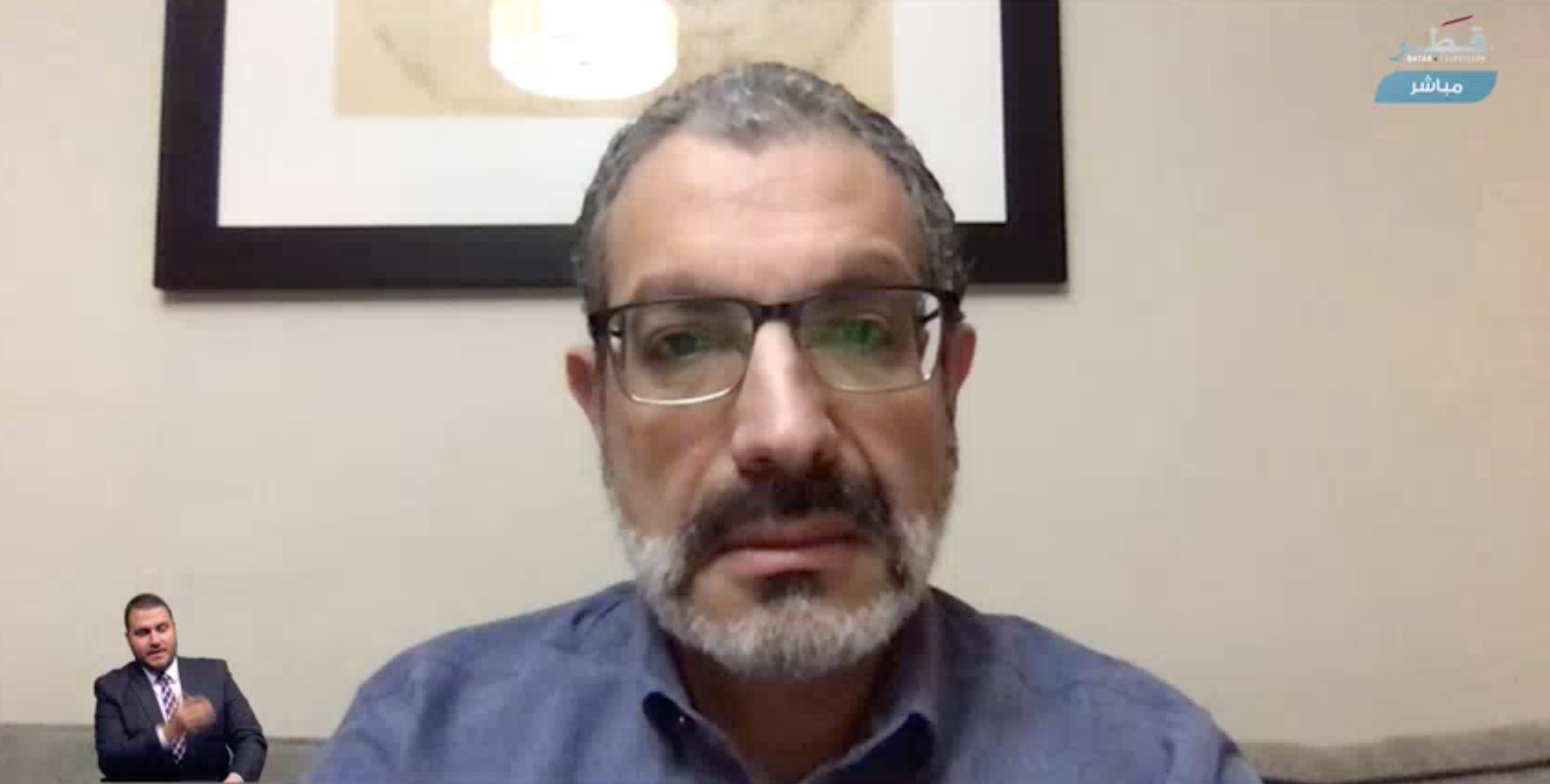
Why Intermittent Fasting Boosts the Body’s Recycling Process

Intermittent fasting is a diet plan that switches between fasting and eating on a regular schedule. An intermittent fasting regimen might be an option for people who seek to lose weight. However, it definitely has benefits on health beyond weight loss. Fasting triggers an essential adaptive response at a cellular-level called Autophagy.
Autophagy as nature’s tool
Autophagy is a natural mechanism in which the cells break down and recycle their components to provide a source of energy in response to nutrient deprivation and starvation. When the cell has sufficient nutrients, the process remains vital for clearing out damaged or old cellular components like proteins and organelles. The process begins with forming vesicles that engulf the damaged proteins and organelles. They then fuse into other cellular structures called lysosomes, which contain potent enzymes. The vesicles' content is broken down by these enzymes and recycled for obtaining energy or for cellular maintenance. The molecular machinery that controls the Autophagy is highly conserved from yeast to mammalians and regulated by specific genes (ATG genes). Two key components of the autophagy molecular machinery have been identified: TOR, which acts as a sensor for nutrient availability, and AMPK, which acts as an energy sensor. When nutrients are depleted (e.g. fasting), TOR is attenuated and AMPK is activated, leading to Autophagy.
As a cellular housekeeping process, Autophagy is indispensable for keeping the cells healthy across the body tissues under physiological conditions. It is also overstimulated in response to other stress stimuli like hypoxia, DNA damage, and cytotoxic agents. Nevertheless, Autophagy is specifically more critical in long-lived terminally differentiated cells like cardiac cells and neurons, as they cannot dilute the accumulated damaged proteins and organelles during aging by cell division. In this context, a large body of evidence from laboratory animals, human tissues and clinical trials considers Autophagy as a pro-longevity mechanism. Dysregulation of Autophagy contributes to the acceleration of many age-related features and the development of diseases such as neurodegenerative, cardiomyopathies and cancer.
Slowing the aging process
Animal studies provided a strong relationship between the acceleration of cardiac muscle aging and reduced Autophagy. In contrast, activating Autophagy by pharmacological interventions slows down age-related functional decline in the heart. Nutritional interventions such as an intermittent fasting regime that enhance autophagic activity reverse the age-associated hypertrophy of the heart and protect the heart against ischemia in rodents. Autophagy is also crucial to maintaining the internal environment of neurons stable. Mutations in genes involved in Autophagy regulation are linked to the high frequency of neurodegenerative disorders such as Alzheimer's disease, amyotrophic lateral sclerosis and familial Parkinson's disease. Without efficient Autophagy, damaged proteins accumulate and aggregate in neurons which appear to be toxic, causing injury or death to cells. Intermittent fasting increases neuronal stress resistance through multiple mechanisms, including enhancing Autophagy, antioxidant defense, and neurotrophic factor production. This approach delayed the onset and progression of the disease in the animal models of Alzheimer's disease and Parkinson's disease.
Targeted therapy
Autophagy has spurred a strong interest throughout the past decade as a potential therapeutic target to manage human disorders that favorably respond to its enhancement. Several drugs have been shown to enhance Autophagy by acting on different molecular targets to mimic caloric restriction. For instance, the medicines that modulate Autophagy inhibit the TOR pathway, such as rapamycin and Torin 1. Metformin is another drug that induces Autophagy by activating the metabolic sensor (AMPK).
However, currently, many challenges arise from using the Autophagy activator drugs as long-term therapy due to their side effects and the feasibility of monitoring their therapeutic efficiency in patients. Alternatively, Autophagy can be induced naturally by changing feeding habits such as calorie restriction or intermittent fasting. The three most widely intermittent-fasting regimens followed are alternate-day fasting, 5:2 intermittent fasting (fasting two days each week), and daily time-restricted eating. Besides, different intermittent fasting approaches have long been part of many religious and spiritual practices. The dawn-to-dusk fasting is a type of daily time-restricted eating which is practiced by Muslims during the entire month of Ramadan.
A recent clinical study led by Dr Mindikoglu from Baylor College of Medicine found that dawn-to-sunset fasting was associated with increased Autophagy markers and other specific protective proteins that are downregulated in disorders such as cancer, diabetes, inflammation and Alzheimer's disease. This study showed promising results that might have implications on the prevention of such conditions.
Duration of fasting
Duration of fasting is a critical factor in achieving the desired health outcome of Autophagy. While there is clear cut evidence of a significant Autophagy induction after 24-48 hours of fasting in mouse models, fewer studies provided evidence of the optimal fasting duration to induce Autophagy in humans. Based on the current scientific literature, Autophagy takes 12 hours to four days of fasting to be rendered in humans. Most clinical studies use blood cells to measure Autophagy. It should be considered that the stimulatory effect of fasting on Autophagy might vary according to different tissues in the body. To enable the evaluation of autophagy and targeted therapeutics in humans, further studies are required to establish procedures for assessing Autophagy, including methods for the analysis of serum biomarkers.
By further conducting human studies in the future that link intermittent fasting and Autophagy with the health benefit outcome, we might be able to develop better strategies for nutritional and pharmacological interventions to prevent diseases such as inflammatory, neurodegenerative and heart disease.
* Dr. Ayman Al Haj Zein is an assistant professor at the College of Health and Life Sciences.
This article is submitted on behalf of the author by the HBKU Communications Directorate. The views expressed are the author’s own and do not necessarily reflect the University’s official stance.
Related News
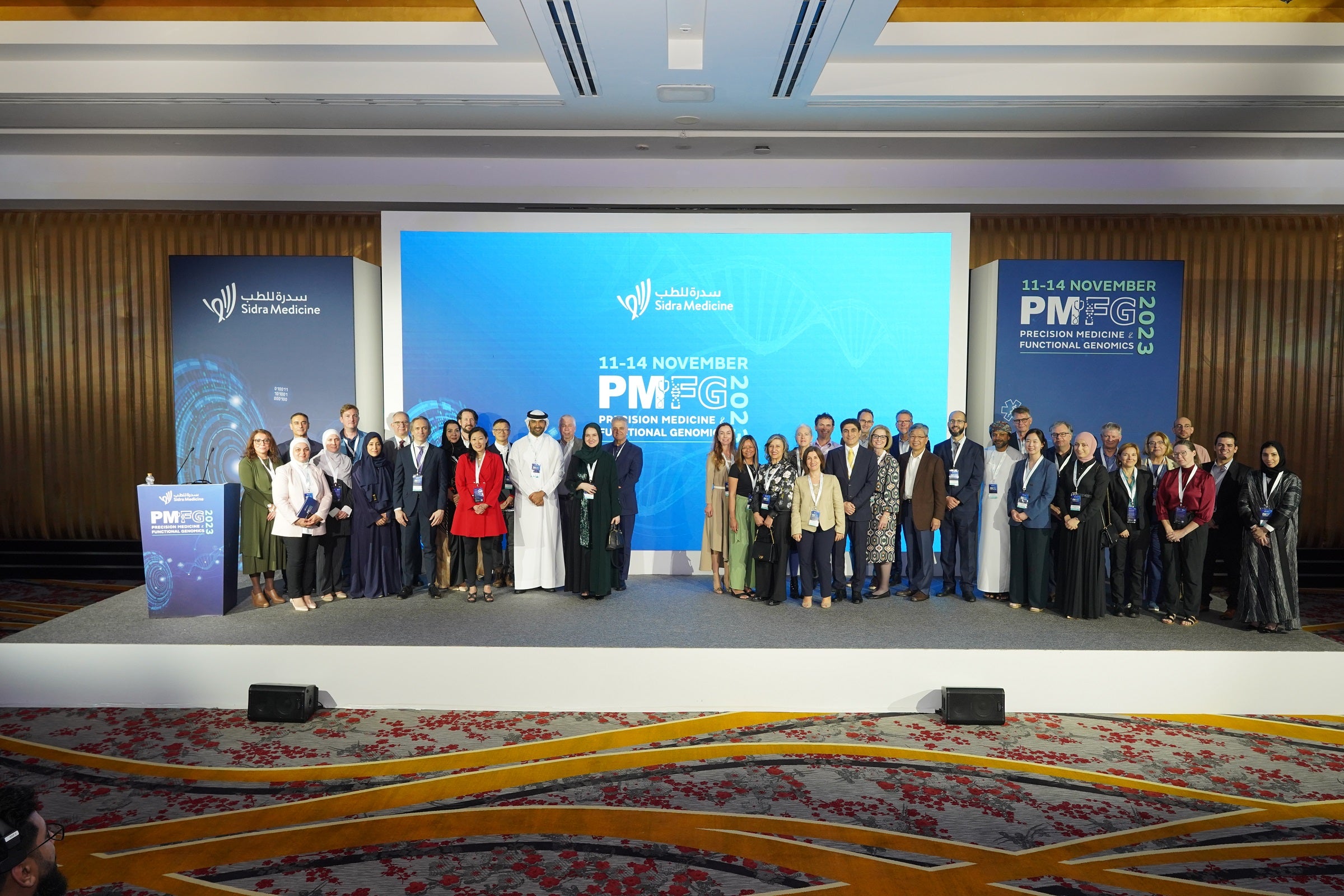
HBKU Participates at Sidra Medicine’s 9th Precision Medicine and Functional Genomics Conference
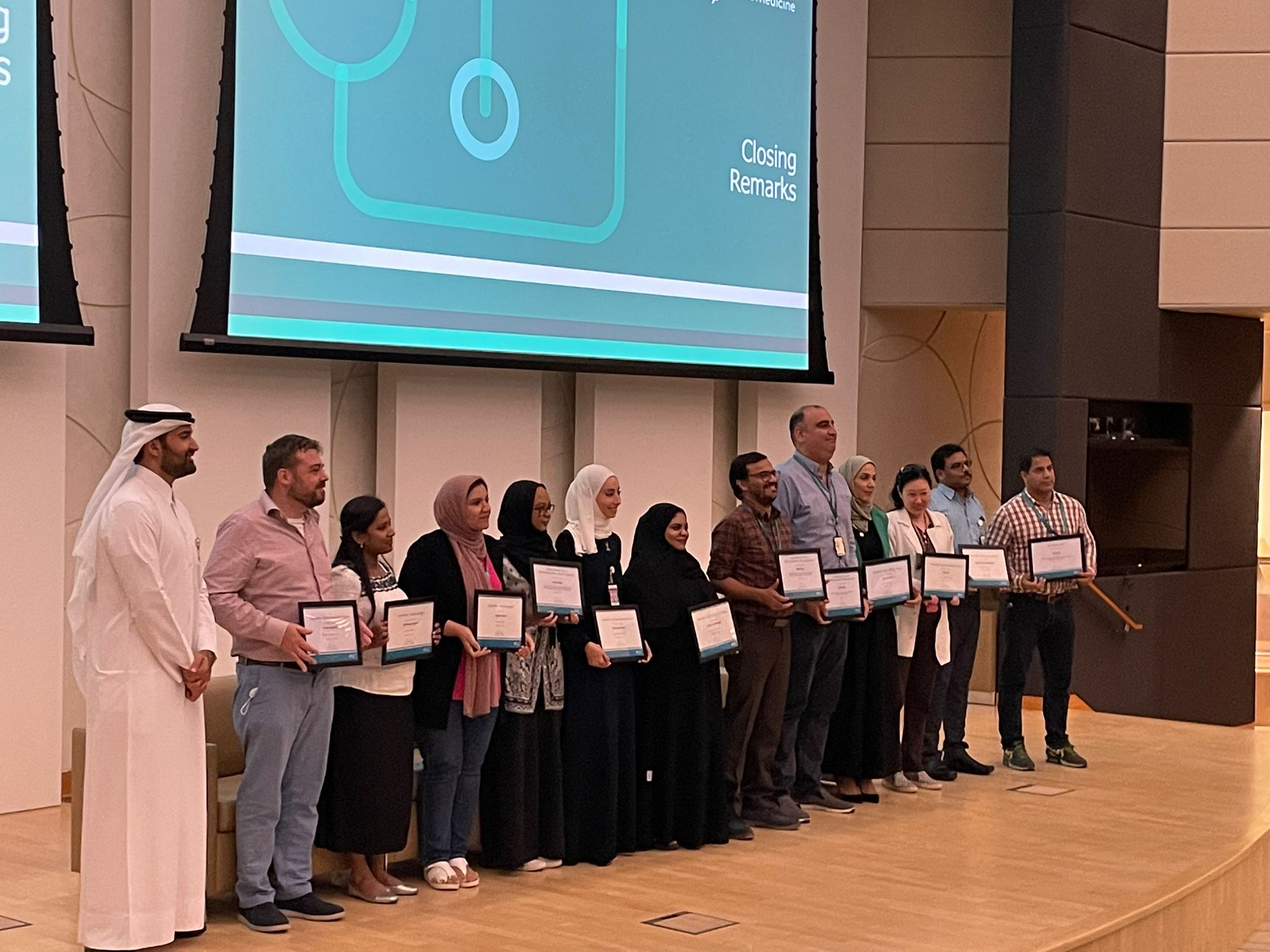
Doctorate Student at HBKU’s College of Health and Life Sciences Receives Specialist Author Award
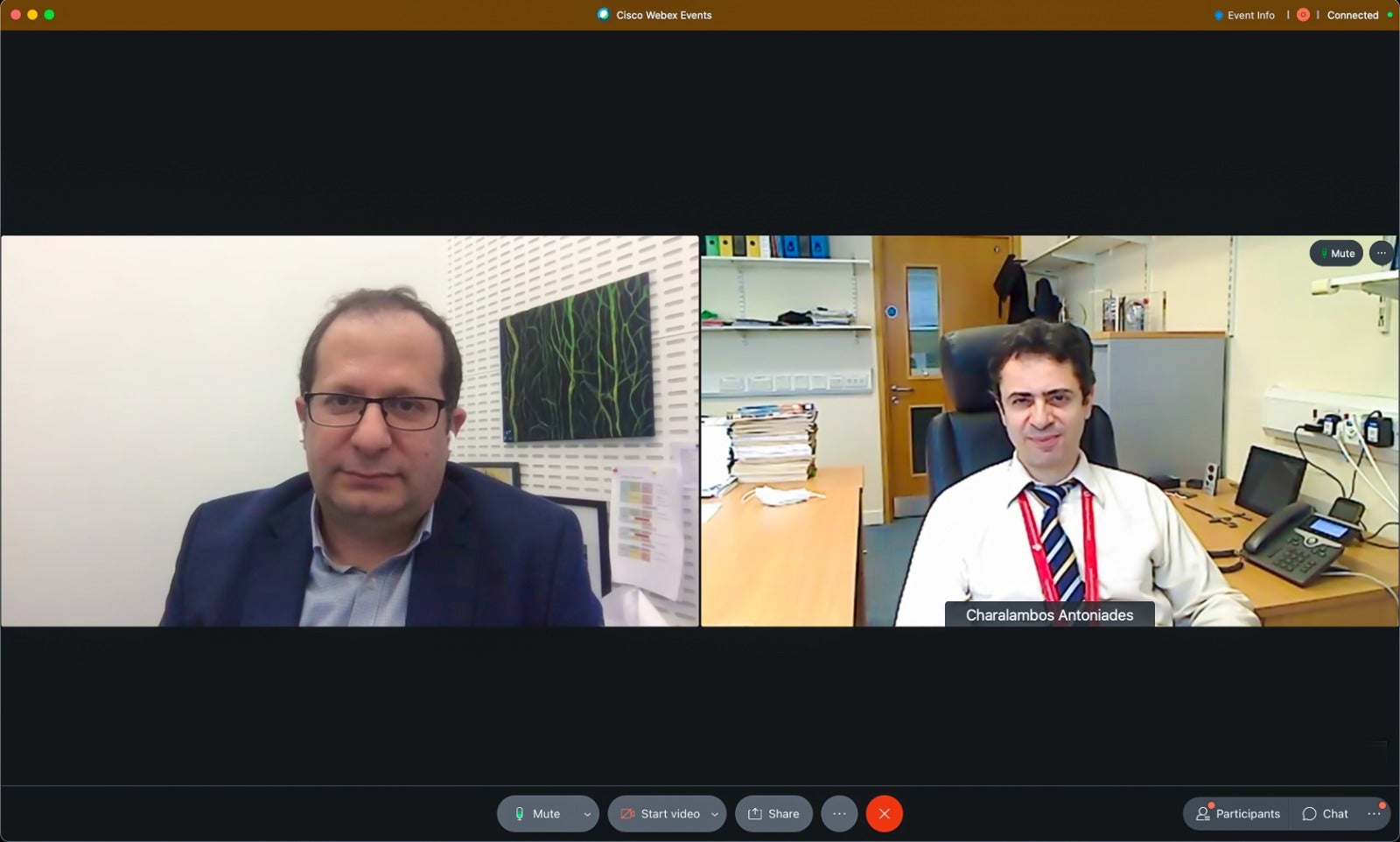
CHLS Presents Webinar on Advances in Early Detection of Heart and Brain Diseases

Vaccination is Vital Not Only for Individual Health but Also to Thwart the Pandemic

College of Health and Life Sciences Highlights Graduate Degree Programs at Virtual Information Session

HBKU’s College of Health and Life Sciences Highlights Potential New Applications for Selective Enzyme Inhibitors in Leading Journal

HBKU’s College of Health and Life Science Highlights Potential for Research Exchange at Qatar-Poland Roundtable

HBKU’s College of Health and Life Sciences Collaborates on Computational Analysis for Potential Drug Repurposing
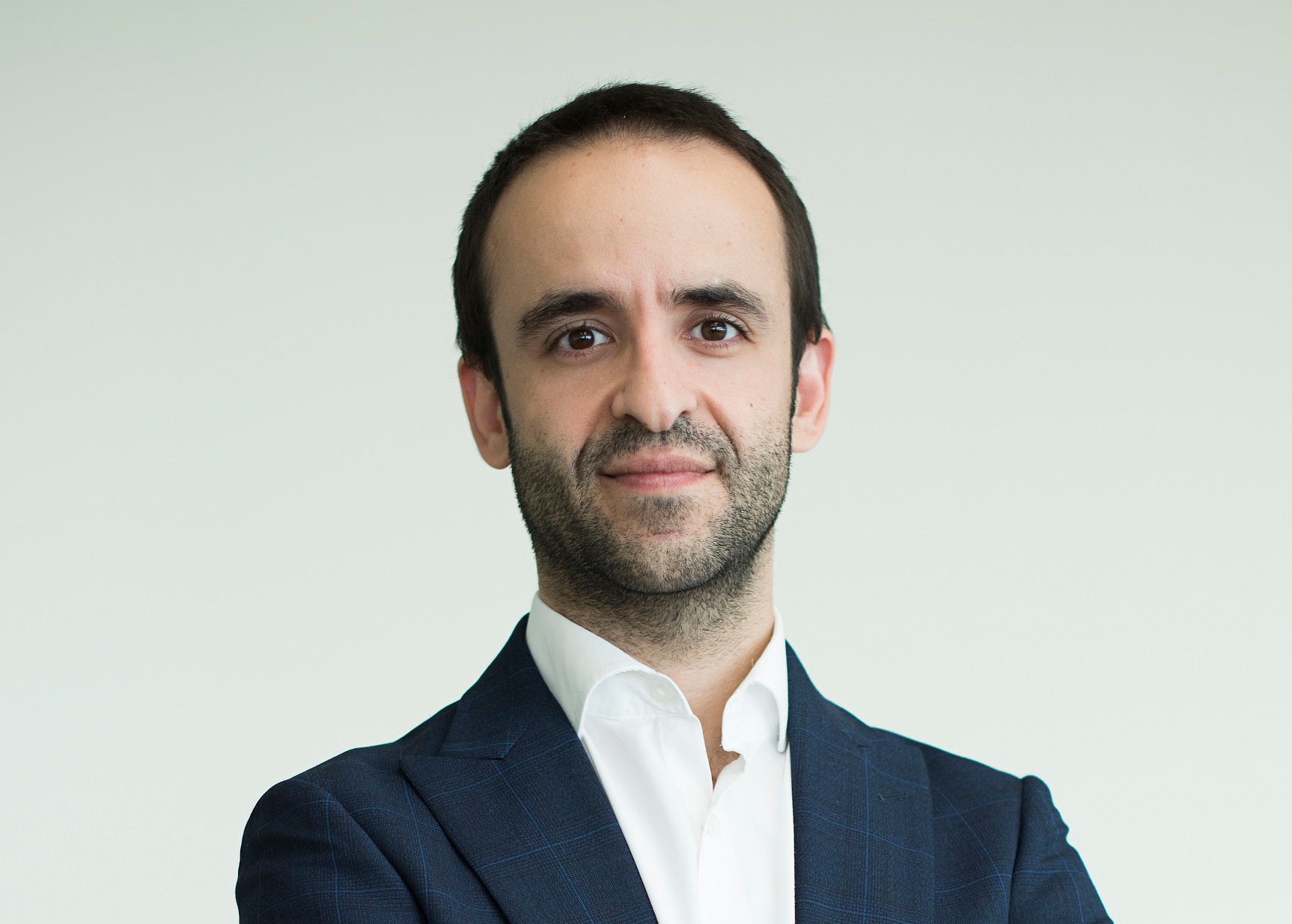
HBKU’s College of Health and Life Sciences Participates at Sidra Medicine's Precision Medicine and Functional Genomics Symposium
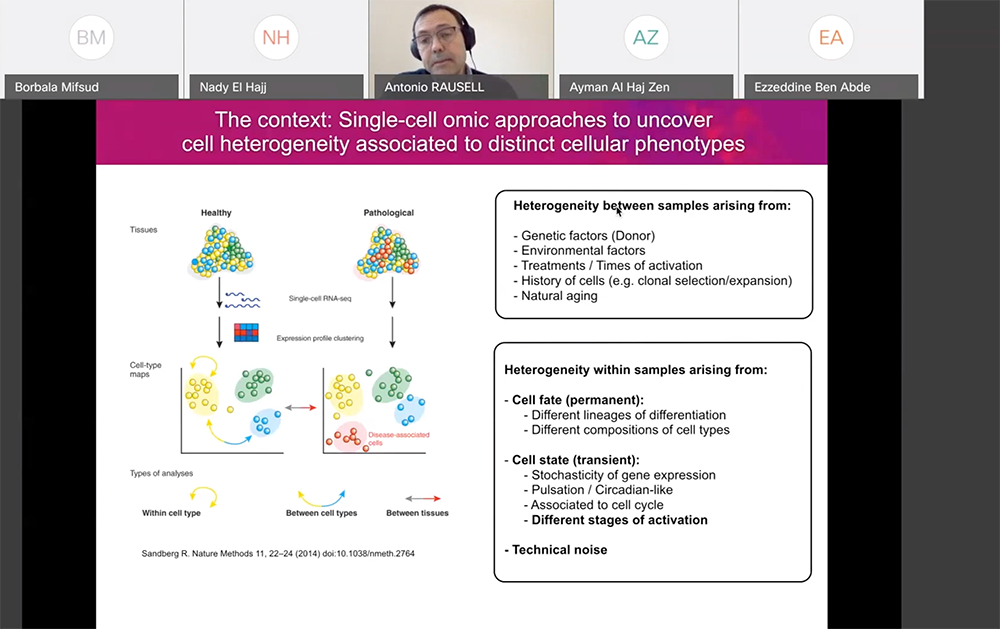
HBKU’s College of Health and Life Sciences Organizes Single-Cell Genomics Symposium

HBKU Participates at Sidra Medicine’s 9th Precision Medicine and Functional Genomics Conference

Doctorate Student at HBKU’s College of Health and Life Sciences Receives Specialist Author Award

CHLS Presents Webinar on Advances in Early Detection of Heart and Brain Diseases

Vaccination is Vital Not Only for Individual Health but Also to Thwart the Pandemic

College of Health and Life Sciences Highlights Graduate Degree Programs at Virtual Information Session

HBKU’s College of Health and Life Sciences Highlights Potential New Applications for Selective Enzyme Inhibitors in Leading Journal

HBKU’s College of Health and Life Science Highlights Potential for Research Exchange at Qatar-Poland Roundtable

HBKU’s College of Health and Life Sciences Collaborates on Computational Analysis for Potential Drug Repurposing

HBKU’s College of Health and Life Sciences Participates at Sidra Medicine's Precision Medicine and Functional Genomics Symposium

HBKU’s College of Health and Life Sciences Organizes Single-Cell Genomics Symposium

HBKU Participates at Sidra Medicine’s 9th Precision Medicine and Functional Genomics Conference

Doctorate Student at HBKU’s College of Health and Life Sciences Receives Specialist Author Award

CHLS Presents Webinar on Advances in Early Detection of Heart and Brain Diseases

Vaccination is Vital Not Only for Individual Health but Also to Thwart the Pandemic

College of Health and Life Sciences Highlights Graduate Degree Programs at Virtual Information Session

HBKU’s College of Health and Life Sciences Highlights Potential New Applications for Selective Enzyme Inhibitors in Leading Journal

HBKU’s College of Health and Life Science Highlights Potential for Research Exchange at Qatar-Poland Roundtable

HBKU’s College of Health and Life Sciences Collaborates on Computational Analysis for Potential Drug Repurposing

HBKU’s College of Health and Life Sciences Participates at Sidra Medicine's Precision Medicine and Functional Genomics Symposium

HBKU’s College of Health and Life Sciences Organizes Single-Cell Genomics Symposium

HBKU Participates at Sidra Medicine’s 9th Precision Medicine and Functional Genomics Conference

Doctorate Student at HBKU’s College of Health and Life Sciences Receives Specialist Author Award

CHLS Presents Webinar on Advances in Early Detection of Heart and Brain Diseases

Vaccination is Vital Not Only for Individual Health but Also to Thwart the Pandemic

College of Health and Life Sciences Highlights Graduate Degree Programs at Virtual Information Session

HBKU’s College of Health and Life Sciences Highlights Potential New Applications for Selective Enzyme Inhibitors in Leading Journal

HBKU’s College of Health and Life Science Highlights Potential for Research Exchange at Qatar-Poland Roundtable

HBKU’s College of Health and Life Sciences Collaborates on Computational Analysis for Potential Drug Repurposing

HBKU’s College of Health and Life Sciences Participates at Sidra Medicine's Precision Medicine and Functional Genomics Symposium

HBKU’s College of Health and Life Sciences Organizes Single-Cell Genomics Symposium

HBKU Participates at Sidra Medicine’s 9th Precision Medicine and Functional Genomics Conference

Doctorate Student at HBKU’s College of Health and Life Sciences Receives Specialist Author Award

CHLS Presents Webinar on Advances in Early Detection of Heart and Brain Diseases

Vaccination is Vital Not Only for Individual Health but Also to Thwart the Pandemic

College of Health and Life Sciences Highlights Graduate Degree Programs at Virtual Information Session

HBKU’s College of Health and Life Sciences Highlights Potential New Applications for Selective Enzyme Inhibitors in Leading Journal

HBKU’s College of Health and Life Science Highlights Potential for Research Exchange at Qatar-Poland Roundtable

HBKU’s College of Health and Life Sciences Collaborates on Computational Analysis for Potential Drug Repurposing

HBKU’s College of Health and Life Sciences Participates at Sidra Medicine's Precision Medicine and Functional Genomics Symposium

HBKU’s College of Health and Life Sciences Organizes Single-Cell Genomics Symposium

HBKU Participates at Sidra Medicine’s 9th Precision Medicine and Functional Genomics Conference

Doctorate Student at HBKU’s College of Health and Life Sciences Receives Specialist Author Award

CHLS Presents Webinar on Advances in Early Detection of Heart and Brain Diseases

Vaccination is Vital Not Only for Individual Health but Also to Thwart the Pandemic

College of Health and Life Sciences Highlights Graduate Degree Programs at Virtual Information Session

HBKU’s College of Health and Life Sciences Highlights Potential New Applications for Selective Enzyme Inhibitors in Leading Journal

HBKU’s College of Health and Life Science Highlights Potential for Research Exchange at Qatar-Poland Roundtable

HBKU’s College of Health and Life Sciences Collaborates on Computational Analysis for Potential Drug Repurposing

HBKU’s College of Health and Life Sciences Participates at Sidra Medicine's Precision Medicine and Functional Genomics Symposium

HBKU’s College of Health and Life Sciences Organizes Single-Cell Genomics Symposium

HBKU Participates at Sidra Medicine’s 9th Precision Medicine and Functional Genomics Conference

Doctorate Student at HBKU’s College of Health and Life Sciences Receives Specialist Author Award

CHLS Presents Webinar on Advances in Early Detection of Heart and Brain Diseases

Vaccination is Vital Not Only for Individual Health but Also to Thwart the Pandemic

College of Health and Life Sciences Highlights Graduate Degree Programs at Virtual Information Session

HBKU’s College of Health and Life Sciences Highlights Potential New Applications for Selective Enzyme Inhibitors in Leading Journal

HBKU’s College of Health and Life Science Highlights Potential for Research Exchange at Qatar-Poland Roundtable

HBKU’s College of Health and Life Sciences Collaborates on Computational Analysis for Potential Drug Repurposing

HBKU’s College of Health and Life Sciences Participates at Sidra Medicine's Precision Medicine and Functional Genomics Symposium

HBKU’s College of Health and Life Sciences Organizes Single-Cell Genomics Symposium

HBKU Participates at Sidra Medicine’s 9th Precision Medicine and Functional Genomics Conference

Doctorate Student at HBKU’s College of Health and Life Sciences Receives Specialist Author Award

CHLS Presents Webinar on Advances in Early Detection of Heart and Brain Diseases

Vaccination is Vital Not Only for Individual Health but Also to Thwart the Pandemic

College of Health and Life Sciences Highlights Graduate Degree Programs at Virtual Information Session

HBKU’s College of Health and Life Sciences Highlights Potential New Applications for Selective Enzyme Inhibitors in Leading Journal

HBKU’s College of Health and Life Science Highlights Potential for Research Exchange at Qatar-Poland Roundtable

HBKU’s College of Health and Life Sciences Collaborates on Computational Analysis for Potential Drug Repurposing

HBKU’s College of Health and Life Sciences Participates at Sidra Medicine's Precision Medicine and Functional Genomics Symposium

HBKU’s College of Health and Life Sciences Organizes Single-Cell Genomics Symposium

HBKU Participates at Sidra Medicine’s 9th Precision Medicine and Functional Genomics Conference

Doctorate Student at HBKU’s College of Health and Life Sciences Receives Specialist Author Award

CHLS Presents Webinar on Advances in Early Detection of Heart and Brain Diseases

Vaccination is Vital Not Only for Individual Health but Also to Thwart the Pandemic

College of Health and Life Sciences Highlights Graduate Degree Programs at Virtual Information Session

HBKU’s College of Health and Life Sciences Highlights Potential New Applications for Selective Enzyme Inhibitors in Leading Journal

HBKU’s College of Health and Life Science Highlights Potential for Research Exchange at Qatar-Poland Roundtable

HBKU’s College of Health and Life Sciences Collaborates on Computational Analysis for Potential Drug Repurposing

HBKU’s College of Health and Life Sciences Participates at Sidra Medicine's Precision Medicine and Functional Genomics Symposium

HBKU’s College of Health and Life Sciences Organizes Single-Cell Genomics Symposium

HBKU Participates at Sidra Medicine’s 9th Precision Medicine and Functional Genomics Conference

Doctorate Student at HBKU’s College of Health and Life Sciences Receives Specialist Author Award

CHLS Presents Webinar on Advances in Early Detection of Heart and Brain Diseases

Vaccination is Vital Not Only for Individual Health but Also to Thwart the Pandemic

College of Health and Life Sciences Highlights Graduate Degree Programs at Virtual Information Session

HBKU’s College of Health and Life Sciences Highlights Potential New Applications for Selective Enzyme Inhibitors in Leading Journal

HBKU’s College of Health and Life Science Highlights Potential for Research Exchange at Qatar-Poland Roundtable

HBKU’s College of Health and Life Sciences Collaborates on Computational Analysis for Potential Drug Repurposing

HBKU’s College of Health and Life Sciences Participates at Sidra Medicine's Precision Medicine and Functional Genomics Symposium

HBKU’s College of Health and Life Sciences Organizes Single-Cell Genomics Symposium

HBKU Participates at Sidra Medicine’s 9th Precision Medicine and Functional Genomics Conference

Doctorate Student at HBKU’s College of Health and Life Sciences Receives Specialist Author Award

CHLS Presents Webinar on Advances in Early Detection of Heart and Brain Diseases

Vaccination is Vital Not Only for Individual Health but Also to Thwart the Pandemic

College of Health and Life Sciences Highlights Graduate Degree Programs at Virtual Information Session

HBKU’s College of Health and Life Sciences Highlights Potential New Applications for Selective Enzyme Inhibitors in Leading Journal

HBKU’s College of Health and Life Science Highlights Potential for Research Exchange at Qatar-Poland Roundtable

HBKU’s College of Health and Life Sciences Collaborates on Computational Analysis for Potential Drug Repurposing

HBKU’s College of Health and Life Sciences Participates at Sidra Medicine's Precision Medicine and Functional Genomics Symposium

HBKU’s College of Health and Life Sciences Organizes Single-Cell Genomics Symposium

HBKU Participates at Sidra Medicine’s 9th Precision Medicine and Functional Genomics Conference

Doctorate Student at HBKU’s College of Health and Life Sciences Receives Specialist Author Award

CHLS Presents Webinar on Advances in Early Detection of Heart and Brain Diseases

Vaccination is Vital Not Only for Individual Health but Also to Thwart the Pandemic

College of Health and Life Sciences Highlights Graduate Degree Programs at Virtual Information Session

HBKU’s College of Health and Life Sciences Highlights Potential New Applications for Selective Enzyme Inhibitors in Leading Journal

HBKU’s College of Health and Life Science Highlights Potential for Research Exchange at Qatar-Poland Roundtable

HBKU’s College of Health and Life Sciences Collaborates on Computational Analysis for Potential Drug Repurposing

HBKU’s College of Health and Life Sciences Participates at Sidra Medicine's Precision Medicine and Functional Genomics Symposium

HBKU’s College of Health and Life Sciences Organizes Single-Cell Genomics Symposium

HBKU Participates at Sidra Medicine’s 9th Precision Medicine and Functional Genomics Conference

Doctorate Student at HBKU’s College of Health and Life Sciences Receives Specialist Author Award

CHLS Presents Webinar on Advances in Early Detection of Heart and Brain Diseases

Vaccination is Vital Not Only for Individual Health but Also to Thwart the Pandemic

College of Health and Life Sciences Highlights Graduate Degree Programs at Virtual Information Session

HBKU’s College of Health and Life Sciences Highlights Potential New Applications for Selective Enzyme Inhibitors in Leading Journal

HBKU’s College of Health and Life Science Highlights Potential for Research Exchange at Qatar-Poland Roundtable

HBKU’s College of Health and Life Sciences Collaborates on Computational Analysis for Potential Drug Repurposing

HBKU’s College of Health and Life Sciences Participates at Sidra Medicine's Precision Medicine and Functional Genomics Symposium

HBKU’s College of Health and Life Sciences Organizes Single-Cell Genomics Symposium

HBKU Participates at Sidra Medicine’s 9th Precision Medicine and Functional Genomics Conference

Doctorate Student at HBKU’s College of Health and Life Sciences Receives Specialist Author Award

CHLS Presents Webinar on Advances in Early Detection of Heart and Brain Diseases

Vaccination is Vital Not Only for Individual Health but Also to Thwart the Pandemic

College of Health and Life Sciences Highlights Graduate Degree Programs at Virtual Information Session

HBKU’s College of Health and Life Sciences Highlights Potential New Applications for Selective Enzyme Inhibitors in Leading Journal

HBKU’s College of Health and Life Science Highlights Potential for Research Exchange at Qatar-Poland Roundtable

HBKU’s College of Health and Life Sciences Collaborates on Computational Analysis for Potential Drug Repurposing

HBKU’s College of Health and Life Sciences Participates at Sidra Medicine's Precision Medicine and Functional Genomics Symposium

HBKU’s College of Health and Life Sciences Organizes Single-Cell Genomics Symposium

HBKU Participates at Sidra Medicine’s 9th Precision Medicine and Functional Genomics Conference

Doctorate Student at HBKU’s College of Health and Life Sciences Receives Specialist Author Award

CHLS Presents Webinar on Advances in Early Detection of Heart and Brain Diseases

Vaccination is Vital Not Only for Individual Health but Also to Thwart the Pandemic

College of Health and Life Sciences Highlights Graduate Degree Programs at Virtual Information Session

HBKU’s College of Health and Life Sciences Highlights Potential New Applications for Selective Enzyme Inhibitors in Leading Journal

HBKU’s College of Health and Life Science Highlights Potential for Research Exchange at Qatar-Poland Roundtable

HBKU’s College of Health and Life Sciences Collaborates on Computational Analysis for Potential Drug Repurposing

HBKU’s College of Health and Life Sciences Participates at Sidra Medicine's Precision Medicine and Functional Genomics Symposium

HBKU’s College of Health and Life Sciences Organizes Single-Cell Genomics Symposium

HBKU Participates at Sidra Medicine’s 9th Precision Medicine and Functional Genomics Conference

Doctorate Student at HBKU’s College of Health and Life Sciences Receives Specialist Author Award

CHLS Presents Webinar on Advances in Early Detection of Heart and Brain Diseases

Vaccination is Vital Not Only for Individual Health but Also to Thwart the Pandemic

College of Health and Life Sciences Highlights Graduate Degree Programs at Virtual Information Session

HBKU’s College of Health and Life Sciences Highlights Potential New Applications for Selective Enzyme Inhibitors in Leading Journal

HBKU’s College of Health and Life Science Highlights Potential for Research Exchange at Qatar-Poland Roundtable

HBKU’s College of Health and Life Sciences Collaborates on Computational Analysis for Potential Drug Repurposing

HBKU’s College of Health and Life Sciences Participates at Sidra Medicine's Precision Medicine and Functional Genomics Symposium

HBKU’s College of Health and Life Sciences Organizes Single-Cell Genomics Symposium

HBKU Participates at Sidra Medicine’s 9th Precision Medicine and Functional Genomics Conference

Doctorate Student at HBKU’s College of Health and Life Sciences Receives Specialist Author Award

CHLS Presents Webinar on Advances in Early Detection of Heart and Brain Diseases

Vaccination is Vital Not Only for Individual Health but Also to Thwart the Pandemic

College of Health and Life Sciences Highlights Graduate Degree Programs at Virtual Information Session

HBKU’s College of Health and Life Sciences Highlights Potential New Applications for Selective Enzyme Inhibitors in Leading Journal

HBKU’s College of Health and Life Science Highlights Potential for Research Exchange at Qatar-Poland Roundtable

HBKU’s College of Health and Life Sciences Collaborates on Computational Analysis for Potential Drug Repurposing

HBKU’s College of Health and Life Sciences Participates at Sidra Medicine's Precision Medicine and Functional Genomics Symposium

HBKU’s College of Health and Life Sciences Organizes Single-Cell Genomics Symposium

HBKU Participates at Sidra Medicine’s 9th Precision Medicine and Functional Genomics Conference

Doctorate Student at HBKU’s College of Health and Life Sciences Receives Specialist Author Award

CHLS Presents Webinar on Advances in Early Detection of Heart and Brain Diseases

Vaccination is Vital Not Only for Individual Health but Also to Thwart the Pandemic

College of Health and Life Sciences Highlights Graduate Degree Programs at Virtual Information Session

HBKU’s College of Health and Life Sciences Highlights Potential New Applications for Selective Enzyme Inhibitors in Leading Journal

HBKU’s College of Health and Life Science Highlights Potential for Research Exchange at Qatar-Poland Roundtable

HBKU’s College of Health and Life Sciences Collaborates on Computational Analysis for Potential Drug Repurposing

HBKU’s College of Health and Life Sciences Participates at Sidra Medicine's Precision Medicine and Functional Genomics Symposium

HBKU’s College of Health and Life Sciences Organizes Single-Cell Genomics Symposium

HBKU Participates at Sidra Medicine’s 9th Precision Medicine and Functional Genomics Conference

Doctorate Student at HBKU’s College of Health and Life Sciences Receives Specialist Author Award

CHLS Presents Webinar on Advances in Early Detection of Heart and Brain Diseases

Vaccination is Vital Not Only for Individual Health but Also to Thwart the Pandemic

College of Health and Life Sciences Highlights Graduate Degree Programs at Virtual Information Session

HBKU’s College of Health and Life Sciences Highlights Potential New Applications for Selective Enzyme Inhibitors in Leading Journal

HBKU’s College of Health and Life Science Highlights Potential for Research Exchange at Qatar-Poland Roundtable

HBKU’s College of Health and Life Sciences Collaborates on Computational Analysis for Potential Drug Repurposing

HBKU’s College of Health and Life Sciences Participates at Sidra Medicine's Precision Medicine and Functional Genomics Symposium

HBKU’s College of Health and Life Sciences Organizes Single-Cell Genomics Symposium

HBKU Participates at Sidra Medicine’s 9th Precision Medicine and Functional Genomics Conference

Doctorate Student at HBKU’s College of Health and Life Sciences Receives Specialist Author Award

CHLS Presents Webinar on Advances in Early Detection of Heart and Brain Diseases

Vaccination is Vital Not Only for Individual Health but Also to Thwart the Pandemic

College of Health and Life Sciences Highlights Graduate Degree Programs at Virtual Information Session

HBKU’s College of Health and Life Sciences Highlights Potential New Applications for Selective Enzyme Inhibitors in Leading Journal

HBKU’s College of Health and Life Science Highlights Potential for Research Exchange at Qatar-Poland Roundtable

HBKU’s College of Health and Life Sciences Collaborates on Computational Analysis for Potential Drug Repurposing

HBKU’s College of Health and Life Sciences Participates at Sidra Medicine's Precision Medicine and Functional Genomics Symposium

HBKU’s College of Health and Life Sciences Organizes Single-Cell Genomics Symposium

HBKU Participates at Sidra Medicine’s 9th Precision Medicine and Functional Genomics Conference

Doctorate Student at HBKU’s College of Health and Life Sciences Receives Specialist Author Award

CHLS Presents Webinar on Advances in Early Detection of Heart and Brain Diseases

Vaccination is Vital Not Only for Individual Health but Also to Thwart the Pandemic

College of Health and Life Sciences Highlights Graduate Degree Programs at Virtual Information Session

HBKU’s College of Health and Life Sciences Highlights Potential New Applications for Selective Enzyme Inhibitors in Leading Journal

HBKU’s College of Health and Life Science Highlights Potential for Research Exchange at Qatar-Poland Roundtable

HBKU’s College of Health and Life Sciences Collaborates on Computational Analysis for Potential Drug Repurposing

HBKU’s College of Health and Life Sciences Participates at Sidra Medicine's Precision Medicine and Functional Genomics Symposium

HBKU’s College of Health and Life Sciences Organizes Single-Cell Genomics Symposium

HBKU Participates at Sidra Medicine’s 9th Precision Medicine and Functional Genomics Conference

Doctorate Student at HBKU’s College of Health and Life Sciences Receives Specialist Author Award

CHLS Presents Webinar on Advances in Early Detection of Heart and Brain Diseases

Vaccination is Vital Not Only for Individual Health but Also to Thwart the Pandemic

College of Health and Life Sciences Highlights Graduate Degree Programs at Virtual Information Session

HBKU’s College of Health and Life Sciences Highlights Potential New Applications for Selective Enzyme Inhibitors in Leading Journal

HBKU’s College of Health and Life Science Highlights Potential for Research Exchange at Qatar-Poland Roundtable

HBKU’s College of Health and Life Sciences Collaborates on Computational Analysis for Potential Drug Repurposing

HBKU’s College of Health and Life Sciences Participates at Sidra Medicine's Precision Medicine and Functional Genomics Symposium

HBKU’s College of Health and Life Sciences Organizes Single-Cell Genomics Symposium

HBKU Participates at Sidra Medicine’s 9th Precision Medicine and Functional Genomics Conference

Doctorate Student at HBKU’s College of Health and Life Sciences Receives Specialist Author Award

CHLS Presents Webinar on Advances in Early Detection of Heart and Brain Diseases

Vaccination is Vital Not Only for Individual Health but Also to Thwart the Pandemic

College of Health and Life Sciences Highlights Graduate Degree Programs at Virtual Information Session

HBKU’s College of Health and Life Sciences Highlights Potential New Applications for Selective Enzyme Inhibitors in Leading Journal

HBKU’s College of Health and Life Science Highlights Potential for Research Exchange at Qatar-Poland Roundtable

HBKU’s College of Health and Life Sciences Collaborates on Computational Analysis for Potential Drug Repurposing

HBKU’s College of Health and Life Sciences Participates at Sidra Medicine's Precision Medicine and Functional Genomics Symposium

HBKU’s College of Health and Life Sciences Organizes Single-Cell Genomics Symposium

HBKU Participates at Sidra Medicine’s 9th Precision Medicine and Functional Genomics Conference

Doctorate Student at HBKU’s College of Health and Life Sciences Receives Specialist Author Award

CHLS Presents Webinar on Advances in Early Detection of Heart and Brain Diseases

Vaccination is Vital Not Only for Individual Health but Also to Thwart the Pandemic

College of Health and Life Sciences Highlights Graduate Degree Programs at Virtual Information Session

HBKU’s College of Health and Life Sciences Highlights Potential New Applications for Selective Enzyme Inhibitors in Leading Journal

HBKU’s College of Health and Life Science Highlights Potential for Research Exchange at Qatar-Poland Roundtable

HBKU’s College of Health and Life Sciences Collaborates on Computational Analysis for Potential Drug Repurposing

HBKU’s College of Health and Life Sciences Participates at Sidra Medicine's Precision Medicine and Functional Genomics Symposium

HBKU’s College of Health and Life Sciences Organizes Single-Cell Genomics Symposium

HBKU Participates at Sidra Medicine’s 9th Precision Medicine and Functional Genomics Conference

Doctorate Student at HBKU’s College of Health and Life Sciences Receives Specialist Author Award

CHLS Presents Webinar on Advances in Early Detection of Heart and Brain Diseases

Vaccination is Vital Not Only for Individual Health but Also to Thwart the Pandemic

College of Health and Life Sciences Highlights Graduate Degree Programs at Virtual Information Session

HBKU’s College of Health and Life Sciences Highlights Potential New Applications for Selective Enzyme Inhibitors in Leading Journal

HBKU’s College of Health and Life Science Highlights Potential for Research Exchange at Qatar-Poland Roundtable

HBKU’s College of Health and Life Sciences Collaborates on Computational Analysis for Potential Drug Repurposing

HBKU’s College of Health and Life Sciences Participates at Sidra Medicine's Precision Medicine and Functional Genomics Symposium

HBKU’s College of Health and Life Sciences Organizes Single-Cell Genomics Symposium

HBKU Participates at Sidra Medicine’s 9th Precision Medicine and Functional Genomics Conference

Doctorate Student at HBKU’s College of Health and Life Sciences Receives Specialist Author Award

CHLS Presents Webinar on Advances in Early Detection of Heart and Brain Diseases

Vaccination is Vital Not Only for Individual Health but Also to Thwart the Pandemic

College of Health and Life Sciences Highlights Graduate Degree Programs at Virtual Information Session

HBKU’s College of Health and Life Sciences Highlights Potential New Applications for Selective Enzyme Inhibitors in Leading Journal

HBKU’s College of Health and Life Science Highlights Potential for Research Exchange at Qatar-Poland Roundtable

HBKU’s College of Health and Life Sciences Collaborates on Computational Analysis for Potential Drug Repurposing

HBKU’s College of Health and Life Sciences Participates at Sidra Medicine's Precision Medicine and Functional Genomics Symposium

HBKU’s College of Health and Life Sciences Organizes Single-Cell Genomics Symposium

HBKU Participates at Sidra Medicine’s 9th Precision Medicine and Functional Genomics Conference

Doctorate Student at HBKU’s College of Health and Life Sciences Receives Specialist Author Award

CHLS Presents Webinar on Advances in Early Detection of Heart and Brain Diseases

Vaccination is Vital Not Only for Individual Health but Also to Thwart the Pandemic

College of Health and Life Sciences Highlights Graduate Degree Programs at Virtual Information Session

HBKU’s College of Health and Life Sciences Highlights Potential New Applications for Selective Enzyme Inhibitors in Leading Journal

HBKU’s College of Health and Life Science Highlights Potential for Research Exchange at Qatar-Poland Roundtable

HBKU’s College of Health and Life Sciences Collaborates on Computational Analysis for Potential Drug Repurposing

HBKU’s College of Health and Life Sciences Participates at Sidra Medicine's Precision Medicine and Functional Genomics Symposium

HBKU’s College of Health and Life Sciences Organizes Single-Cell Genomics Symposium

HBKU Participates at Sidra Medicine’s 9th Precision Medicine and Functional Genomics Conference

Doctorate Student at HBKU’s College of Health and Life Sciences Receives Specialist Author Award

CHLS Presents Webinar on Advances in Early Detection of Heart and Brain Diseases

Vaccination is Vital Not Only for Individual Health but Also to Thwart the Pandemic

College of Health and Life Sciences Highlights Graduate Degree Programs at Virtual Information Session

HBKU’s College of Health and Life Sciences Highlights Potential New Applications for Selective Enzyme Inhibitors in Leading Journal

HBKU’s College of Health and Life Science Highlights Potential for Research Exchange at Qatar-Poland Roundtable

HBKU’s College of Health and Life Sciences Collaborates on Computational Analysis for Potential Drug Repurposing

HBKU’s College of Health and Life Sciences Participates at Sidra Medicine's Precision Medicine and Functional Genomics Symposium

HBKU’s College of Health and Life Sciences Organizes Single-Cell Genomics Symposium

HBKU Participates at Sidra Medicine’s 9th Precision Medicine and Functional Genomics Conference

Doctorate Student at HBKU’s College of Health and Life Sciences Receives Specialist Author Award

CHLS Presents Webinar on Advances in Early Detection of Heart and Brain Diseases

Vaccination is Vital Not Only for Individual Health but Also to Thwart the Pandemic

College of Health and Life Sciences Highlights Graduate Degree Programs at Virtual Information Session

HBKU’s College of Health and Life Sciences Highlights Potential New Applications for Selective Enzyme Inhibitors in Leading Journal

HBKU’s College of Health and Life Science Highlights Potential for Research Exchange at Qatar-Poland Roundtable

HBKU’s College of Health and Life Sciences Collaborates on Computational Analysis for Potential Drug Repurposing

HBKU’s College of Health and Life Sciences Participates at Sidra Medicine's Precision Medicine and Functional Genomics Symposium

HBKU’s College of Health and Life Sciences Organizes Single-Cell Genomics Symposium

HBKU Participates at Sidra Medicine’s 9th Precision Medicine and Functional Genomics Conference

Doctorate Student at HBKU’s College of Health and Life Sciences Receives Specialist Author Award

CHLS Presents Webinar on Advances in Early Detection of Heart and Brain Diseases

Vaccination is Vital Not Only for Individual Health but Also to Thwart the Pandemic

College of Health and Life Sciences Highlights Graduate Degree Programs at Virtual Information Session

HBKU’s College of Health and Life Sciences Highlights Potential New Applications for Selective Enzyme Inhibitors in Leading Journal

HBKU’s College of Health and Life Science Highlights Potential for Research Exchange at Qatar-Poland Roundtable

HBKU’s College of Health and Life Sciences Collaborates on Computational Analysis for Potential Drug Repurposing

HBKU’s College of Health and Life Sciences Participates at Sidra Medicine's Precision Medicine and Functional Genomics Symposium

HBKU’s College of Health and Life Sciences Organizes Single-Cell Genomics Symposium

HBKU Participates at Sidra Medicine’s 9th Precision Medicine and Functional Genomics Conference

Doctorate Student at HBKU’s College of Health and Life Sciences Receives Specialist Author Award

CHLS Presents Webinar on Advances in Early Detection of Heart and Brain Diseases

Vaccination is Vital Not Only for Individual Health but Also to Thwart the Pandemic

College of Health and Life Sciences Highlights Graduate Degree Programs at Virtual Information Session

HBKU’s College of Health and Life Sciences Highlights Potential New Applications for Selective Enzyme Inhibitors in Leading Journal

HBKU’s College of Health and Life Science Highlights Potential for Research Exchange at Qatar-Poland Roundtable

HBKU’s College of Health and Life Sciences Collaborates on Computational Analysis for Potential Drug Repurposing

HBKU’s College of Health and Life Sciences Participates at Sidra Medicine's Precision Medicine and Functional Genomics Symposium

HBKU’s College of Health and Life Sciences Organizes Single-Cell Genomics Symposium

HBKU Participates at Sidra Medicine’s 9th Precision Medicine and Functional Genomics Conference

Doctorate Student at HBKU’s College of Health and Life Sciences Receives Specialist Author Award

CHLS Presents Webinar on Advances in Early Detection of Heart and Brain Diseases

Vaccination is Vital Not Only for Individual Health but Also to Thwart the Pandemic

College of Health and Life Sciences Highlights Graduate Degree Programs at Virtual Information Session

HBKU’s College of Health and Life Sciences Highlights Potential New Applications for Selective Enzyme Inhibitors in Leading Journal

HBKU’s College of Health and Life Science Highlights Potential for Research Exchange at Qatar-Poland Roundtable

HBKU’s College of Health and Life Sciences Collaborates on Computational Analysis for Potential Drug Repurposing

HBKU’s College of Health and Life Sciences Participates at Sidra Medicine's Precision Medicine and Functional Genomics Symposium

HBKU’s College of Health and Life Sciences Organizes Single-Cell Genomics Symposium

HBKU Participates at Sidra Medicine’s 9th Precision Medicine and Functional Genomics Conference

Doctorate Student at HBKU’s College of Health and Life Sciences Receives Specialist Author Award

CHLS Presents Webinar on Advances in Early Detection of Heart and Brain Diseases

Vaccination is Vital Not Only for Individual Health but Also to Thwart the Pandemic

College of Health and Life Sciences Highlights Graduate Degree Programs at Virtual Information Session

HBKU’s College of Health and Life Sciences Highlights Potential New Applications for Selective Enzyme Inhibitors in Leading Journal

HBKU’s College of Health and Life Science Highlights Potential for Research Exchange at Qatar-Poland Roundtable

HBKU’s College of Health and Life Sciences Collaborates on Computational Analysis for Potential Drug Repurposing

HBKU’s College of Health and Life Sciences Participates at Sidra Medicine's Precision Medicine and Functional Genomics Symposium

HBKU’s College of Health and Life Sciences Organizes Single-Cell Genomics Symposium

HBKU Participates at Sidra Medicine’s 9th Precision Medicine and Functional Genomics Conference

Doctorate Student at HBKU’s College of Health and Life Sciences Receives Specialist Author Award

CHLS Presents Webinar on Advances in Early Detection of Heart and Brain Diseases

Vaccination is Vital Not Only for Individual Health but Also to Thwart the Pandemic

College of Health and Life Sciences Highlights Graduate Degree Programs at Virtual Information Session

HBKU’s College of Health and Life Sciences Highlights Potential New Applications for Selective Enzyme Inhibitors in Leading Journal

HBKU’s College of Health and Life Science Highlights Potential for Research Exchange at Qatar-Poland Roundtable

HBKU’s College of Health and Life Sciences Collaborates on Computational Analysis for Potential Drug Repurposing

HBKU’s College of Health and Life Sciences Participates at Sidra Medicine's Precision Medicine and Functional Genomics Symposium

HBKU’s College of Health and Life Sciences Organizes Single-Cell Genomics Symposium

HBKU Participates at Sidra Medicine’s 9th Precision Medicine and Functional Genomics Conference

Doctorate Student at HBKU’s College of Health and Life Sciences Receives Specialist Author Award

CHLS Presents Webinar on Advances in Early Detection of Heart and Brain Diseases

Vaccination is Vital Not Only for Individual Health but Also to Thwart the Pandemic

College of Health and Life Sciences Highlights Graduate Degree Programs at Virtual Information Session

HBKU’s College of Health and Life Sciences Highlights Potential New Applications for Selective Enzyme Inhibitors in Leading Journal

HBKU’s College of Health and Life Science Highlights Potential for Research Exchange at Qatar-Poland Roundtable

HBKU’s College of Health and Life Sciences Collaborates on Computational Analysis for Potential Drug Repurposing

HBKU’s College of Health and Life Sciences Participates at Sidra Medicine's Precision Medicine and Functional Genomics Symposium

HBKU’s College of Health and Life Sciences Organizes Single-Cell Genomics Symposium

HBKU Participates at Sidra Medicine’s 9th Precision Medicine and Functional Genomics Conference

Doctorate Student at HBKU’s College of Health and Life Sciences Receives Specialist Author Award

CHLS Presents Webinar on Advances in Early Detection of Heart and Brain Diseases

Vaccination is Vital Not Only for Individual Health but Also to Thwart the Pandemic

College of Health and Life Sciences Highlights Graduate Degree Programs at Virtual Information Session

HBKU’s College of Health and Life Sciences Highlights Potential New Applications for Selective Enzyme Inhibitors in Leading Journal

HBKU’s College of Health and Life Science Highlights Potential for Research Exchange at Qatar-Poland Roundtable

HBKU’s College of Health and Life Sciences Collaborates on Computational Analysis for Potential Drug Repurposing

HBKU’s College of Health and Life Sciences Participates at Sidra Medicine's Precision Medicine and Functional Genomics Symposium

HBKU’s College of Health and Life Sciences Organizes Single-Cell Genomics Symposium

HBKU Participates at Sidra Medicine’s 9th Precision Medicine and Functional Genomics Conference

Doctorate Student at HBKU’s College of Health and Life Sciences Receives Specialist Author Award

CHLS Presents Webinar on Advances in Early Detection of Heart and Brain Diseases

Vaccination is Vital Not Only for Individual Health but Also to Thwart the Pandemic

College of Health and Life Sciences Highlights Graduate Degree Programs at Virtual Information Session

HBKU’s College of Health and Life Sciences Highlights Potential New Applications for Selective Enzyme Inhibitors in Leading Journal

HBKU’s College of Health and Life Science Highlights Potential for Research Exchange at Qatar-Poland Roundtable

HBKU’s College of Health and Life Sciences Collaborates on Computational Analysis for Potential Drug Repurposing

HBKU’s College of Health and Life Sciences Participates at Sidra Medicine's Precision Medicine and Functional Genomics Symposium

HBKU’s College of Health and Life Sciences Organizes Single-Cell Genomics Symposium

HBKU Participates at Sidra Medicine’s 9th Precision Medicine and Functional Genomics Conference

Doctorate Student at HBKU’s College of Health and Life Sciences Receives Specialist Author Award

CHLS Presents Webinar on Advances in Early Detection of Heart and Brain Diseases

Vaccination is Vital Not Only for Individual Health but Also to Thwart the Pandemic

College of Health and Life Sciences Highlights Graduate Degree Programs at Virtual Information Session

HBKU’s College of Health and Life Sciences Highlights Potential New Applications for Selective Enzyme Inhibitors in Leading Journal

HBKU’s College of Health and Life Science Highlights Potential for Research Exchange at Qatar-Poland Roundtable

HBKU’s College of Health and Life Sciences Collaborates on Computational Analysis for Potential Drug Repurposing

HBKU’s College of Health and Life Sciences Participates at Sidra Medicine's Precision Medicine and Functional Genomics Symposium

HBKU’s College of Health and Life Sciences Organizes Single-Cell Genomics Symposium

HBKU Participates at Sidra Medicine’s 9th Precision Medicine and Functional Genomics Conference

Doctorate Student at HBKU’s College of Health and Life Sciences Receives Specialist Author Award

CHLS Presents Webinar on Advances in Early Detection of Heart and Brain Diseases

Vaccination is Vital Not Only for Individual Health but Also to Thwart the Pandemic

College of Health and Life Sciences Highlights Graduate Degree Programs at Virtual Information Session

HBKU’s College of Health and Life Sciences Highlights Potential New Applications for Selective Enzyme Inhibitors in Leading Journal

HBKU’s College of Health and Life Science Highlights Potential for Research Exchange at Qatar-Poland Roundtable

HBKU’s College of Health and Life Sciences Collaborates on Computational Analysis for Potential Drug Repurposing

HBKU’s College of Health and Life Sciences Participates at Sidra Medicine's Precision Medicine and Functional Genomics Symposium

HBKU’s College of Health and Life Sciences Organizes Single-Cell Genomics Symposium

HBKU Participates at Sidra Medicine’s 9th Precision Medicine and Functional Genomics Conference

Doctorate Student at HBKU’s College of Health and Life Sciences Receives Specialist Author Award

CHLS Presents Webinar on Advances in Early Detection of Heart and Brain Diseases

Vaccination is Vital Not Only for Individual Health but Also to Thwart the Pandemic

College of Health and Life Sciences Highlights Graduate Degree Programs at Virtual Information Session

HBKU’s College of Health and Life Sciences Highlights Potential New Applications for Selective Enzyme Inhibitors in Leading Journal

HBKU’s College of Health and Life Science Highlights Potential for Research Exchange at Qatar-Poland Roundtable

HBKU’s College of Health and Life Sciences Collaborates on Computational Analysis for Potential Drug Repurposing

HBKU’s College of Health and Life Sciences Participates at Sidra Medicine's Precision Medicine and Functional Genomics Symposium











